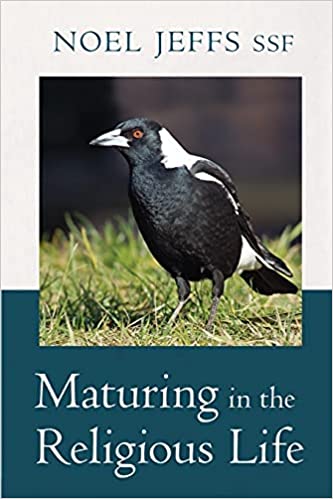Book Review of: Maturing in the Religious Life


When I quizzed as to why this was so in my reading of Maturing in the Religious Life, I found myself deeply responsive to its plea that all true expressions of sexuality in love be considered as legitimate and integral parts of the very desire which draws people to a religious vocation in the first place and, yes, even when, tellingly, those feelings are not physically consummated.
Here Brother Thomas’ training in psychotherapy is so helpful in redressing the glaring omission, reinforcing as it does the truth that sexual desire is central to all human emotions, and that therefore neither (at worst) is it to be despised nor (at best), to be ignored.
Hence my sadness and my admiration: sadness because Brother Noel has had to plea-bargain for such a cause, and admiration for the courage it takes to bring these matters to the attention of a not always sympathetic Christian readership. Perhaps former Archbishop of Canterbury, Rowan Williams’ ‘inconvenient’ observation that institutional Christianity, all too often, comes across awkwardly when dealing with the big issues of life and death and especially so with matters regarding human sexuality—is a timely one endorsing the need for such a book as this.
Covering a significant range of insights, including those of Anna Freud, Margaret Mahler, Donald Winnicott, Eric Erikson and Carl Jung, Brother Noel links psychotherapy with the notion that sexuality and spirituality spring from the same source, and are not antithetical to the biblical presentation of ‘the heart’ in as much as even sexuality and maturation are there viewed together in complementarity as beautifully portrayed in ‘The Song of Songs.’ And this I think is the book’s most valuable contribution: its strong image of the heart and the heart’s desire—and more, the indispensability of the body in the expression of that desire as being perfectly consistent with a spiritual, religious vocation.
However, as persuasive and as moving as this merging of psychoanalysis and the biblical notion of the ‘heart’ was for me, I was in the end left wondering why Brother Noel was compelled to stay with that—what one might call—an ‘Augustinian’ view of the call to the religious life—and why he did not perhaps give more of an airing to forms of spirituality which might have been even more sympathetic to his cause. For I anticipate that some voices will be raised to say that ‘psychoanalysis’ is not Christian enough to be ‘biblical.’
Constance M. Furey (2012, (eds.) Hollywood and Beckman, Christian Mysticism, in her chapter ‘Sexuality’ lays bare Jacques Lacan’s ridiculous proclamation that Teresa of Avila’s (1515-1582) ‘visceral description’ of her spiritual experience, amounts to nothing more than the barely comprehensible groans of ‘an orgasmic woman’ (“she’s coming. There’s no doubt about it” – Lacan, 1972-73: 76). Furey identifies the traps into which the careless reader of spiritual vocation must fall. No wonder, Furey opines, those who study mysticism are wary of the pitfalls and so either, ‘disavow the topic of sexuality altogether,’ or ‘argue that the longing expressed in mystical texts is erotic rather than sexual,’ all of which, she argues, misses the point that ‘the desiring body,’ which mystics like Teresa (and dare one say Brother Noel) actually see, is a body
which transcends the notion of sexuality as ‘a fixed identity.’ That this mystical sexuality (call it for what it is) is also not something that can be ‘plotted along a grid with the dichotomy of heterosexuality and homosexuality on one axis, and the abstinence of intercourse on the other.’ Rather it is about, ‘the way these encounters dislocate the embodied self, reimagining it in spaces and forms not regularly inhabited.’ (2012: 331).
Thus when Teresa of Avila longingly cries out in response to The Song of Songs, “Let him kiss me with a kiss of His mouth,” or “Thy breasts are better than wine for they give off fragrance of sweet odours,” argues Furey, the religious perspective goes way beyond the purely sexual and takes it to another plane where ‘the interweaving of bride and nursing mother, bridegroom and nursing mother, one who nourishes and one who pleasures,’ (2012: 334), all somehow merge into one
And it is right here I think Brother Noel has made his contribution. To underline for us all, in the words of Furey, ‘how difficult it is to differentiate between the desire for food and touch, sleep and sex, between arousal and satisfaction,’ (Ibid, 334).
Thank you Brother Noel SSF in helping us after all to see what is involved in ‘maturing in the religious life.’
Reverend Dr Nikolai Blaskow
Adjunct Research Fellow, CSU Canberra
February 21, 2022
Click here for book: Maturing in the Religious Life
